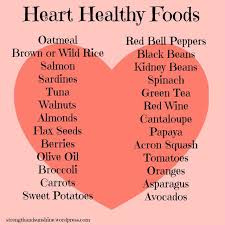
Diagnosed with Cancer? Your two greatest challenges are understanding cancer and understanding possible side effects from chemo and radiation. Knowledge is Power!
Learn about conventional, complementary, and integrative therapies.
Dealing with treatment side effects? Learn about evidence-based therapies to alleviate your symptoms.
Click the orange button to the right to learn more.
- You are here:
- Home »
- Blog »
- side effects ID and prevention »
- Cardiovascular Disease, Falls in the Elderly
Cardiovascular Disease, Falls in the Elderly

“…our study shows that subclinical cardiovascular disease is itself a fall risk factor. This raises the important question of whether treatment of subclinical cardiovascular disease could help prevent falls…”
I was diagnosed with multiple myeloma in early 1994. I underwent standard-of-care MM therapies such as surgery, chemotherapy and radiation between my diagnosis and 9/30/97 when my oncologist told me that “we can do nothing more for you.”
I developed chronic atrial fibrillation (a-fib 24/7) in late 2010. I’ve been generally working on my heart health these past 10 years. I got serious about my heart health when I was diagnosed with chemotherapy-induced cardiomyopathy at the beginning of 2019. I was so focused on me, it didn’t occur to me that my mom might be a fall risk.
So when I came across the studies linked below, I wondered about my mom’s heart health when she took a fall in the spring of 2018. If I knew then what I know now about heart health, I wonder if I could have helped her?
Once I thought about it, both my mom and me were both what the articled refer to as a fall-risk. I think my bones are stronger than my mom’s are but still…
Mom was the same type of elderly person described in the studies below. Nothing much about her heart was seriously wrong other than occasional a-fib. Most all of my mom’s friends take blood thinners because of a-fib so I though nothing about it.
And to be honest, my mom was living independently, was still driving, her life was pretty good for an 88 year old. But once she fell and broke her hip while gardening one afternoon, everything changed.
A month in and out of the hospital, another month in a rehabilitation facility and then assisted living. No more independence- its all about needing assistence now.
Do you have subclinical cardiovascular disease? Meaning, do you wonder if your heart health is…less than it should be? Are you a fall risk yourself?
I believe that my own health health has improved since I began having problems in 2010. I believe that lifestyle therapies such as:
- exercise,
- nutrition,
- supplementation,
- lifestyle therapies,
etc. can make a real difference to our heart health-before we begin beta blockers, ACE inhibitors, etc.
To learn more about evidence-based, non-toxic heart health therapies, scroll down the page, post a question or comment and I will reply to you ASAP.
Thank you,
David Emerson
- MM Survivor
- MM Cancer Coach
- Director PeopleBeatingCancer
Recommended Reading:
- Living With Chronic Atrial Fibrillation with Non-Conventional Therapy
- Coffee, Afib, Cardiomyopathy and Cancer Survivor
- Cancer Survivors’ and Falls- Prevention is Key to QOL
Subclinical heart disease may cause more falls in older people
“Adults around age 75 with subclinical myocardial damage and cardiac wall strain are at a higher risk of falling than those without those conditions, according to a study published Wednesday in the Journal of the American Geriatrics Society. These findings suggest increasing heart health could prevent their falls from occurring within the older population…
“For the first time, our study shows that subclinical cardiovascular disease is itself a fall risk factor. This raises the important question of whether treatment of subclinical cardiovascular disease could help prevent falls among older adults…”
Each year, about one in four older adults in the United States falls, according to the Centers for Disease Control and Prevention. These accidents amount to nearly $37 billion in Medicaid and Medicare spending each year…”
Subclinical Cardiovascular Disease and Fall Risk in Older Adults: Results From the Atherosclerosis Risk in Communities Study
“We hypothesized that elevations in high‐sensitivity cardiac troponin T (hs‐cTnT) and N‐terminal pro‐B‐type natriuretic peptide (NT‐proBNP), measured in older adults, would be associated with greater fall risk…
Comparing highest vs lowest quartiles of either hs‐cTnT or NT‐proBNP demonstrated a greater than two‐fold higher fall risk, with hazard ratios of 2.17 (95% confidence interval {CI} = 1.60‐2.95) and 2.34 (95% CI = 1.73‐3.16), respectively.
In a joint model, the relationships of hs‐cTnT and NT‐proBNP with falls were significant and independent.
CONCLUSION- Subclinical elevations of cardiac damage and wall strain were each associated with a higher fall risk in older adults. Further research is needed to determine whether interventions that lower hs‐cTnT or NT‐proBNP also lower fall risk.


